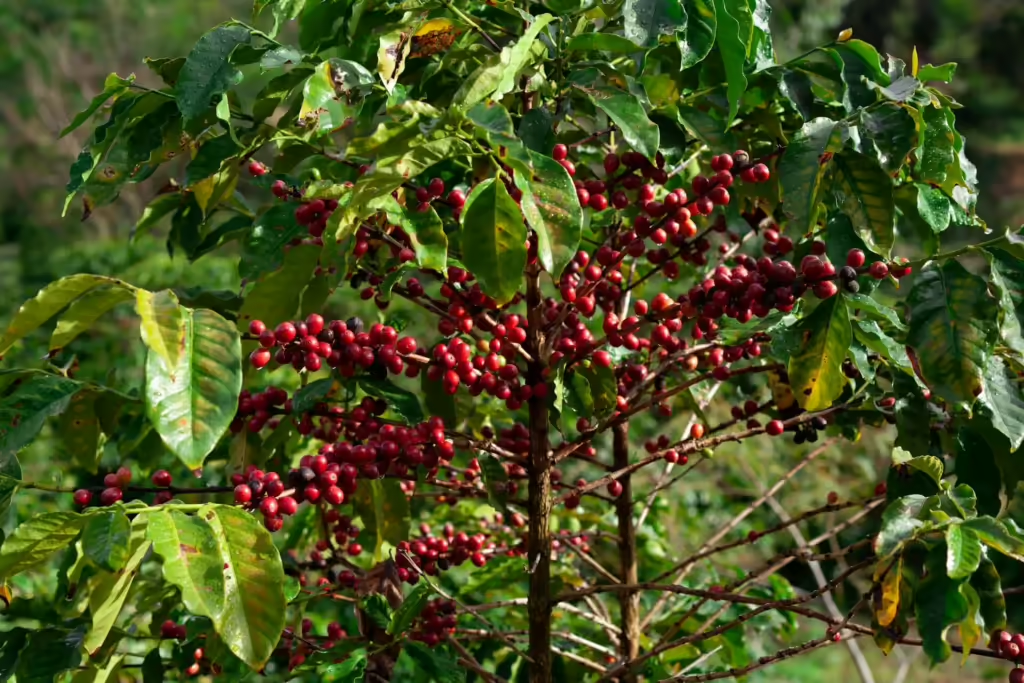
Tanzanian Coffee: Exploring its Unique Tastes and Traditions
Tanzanian coffee is a hidden gem in the world of specialty coffees, offering a rich and diverse flavor experience that reflects the country’s varied landscapes and cultural heritage. While coffee lovers often rave about Ethiopian or Kenyan beans, Tanzanian coffee holds its own with unique flavor profiles, traditional processing methods, and deep-rooted cultural significance.
In this blog, we’ll journey through the coffee-growing regions of Tanzania, explore the distinct tastes of its beans, and delve into the traditions that make Tanzanian coffee so special.
Coffee Production in Tanzania
Tanzania has a long history of coffee production, dating back to the 16th century when coffee plants were first introduced to the region. Today, coffee is one of the country’s most important cash crops, with annual production averaging around 50,000 to 60,000 metric tons. Arabica coffee makes up about 70% of the total production, with the remaining 30% being Robusta.
Despite its significant production, Tanzanian coffee faces several challenges, including climate change, fluctuating market prices, and the need for improved farming practices. However, the coffee industry remains a vital part of Tanzania’s economy, providing livelihoods for over 400,000 smallholder farmers.
Tanzania’s coffee is primarily exported to Europe, the United States, and Japan, where it is appreciated for its unique flavors and high quality. The global demand for specialty coffee has also boosted the visibility of Tanzanian beans, with many consumers now seeking out these distinctive coffees for their complex and vibrant taste profiles.
Coffee Growing Regions of Tanzania


Tanzania’s diverse geography and climate create ideal conditions for coffee cultivation, with several regions known for producing high-quality beans. Let’s explore the top five coffee-growing regions in Tanzania:
Kilimanjaro
Kilimanjaro is perhaps the most famous coffee-growing region in Tanzania, known for its high-altitude Arabica coffee. Grown on the slopes of Africa’s tallest mountain, Kilimanjaro coffee is prized for its bright acidity, medium body, and complex flavors that often include notes of citrus, vanilla, berries, and floral undertones. The volcanic soil and ideal climate contribute to the exceptional quality of Kilimanjaro coffee, making it a favorite among specialty coffee enthusiasts.
Mbeya
Located in southern Tanzania, Mbeya is known for its diverse microclimates, which produce a wide range of flavor profiles in its coffee beans. Coffee from Mbeya often exhibits fruity notes, with a pleasant acidity and a medium to full body. The region’s elevation and fertile soil provide excellent conditions for growing Arabica coffee, making Mbeya one of Tanzania’s top coffee-producing regions.
Ruvuma
Ruvuma, in the southern highlands of Tanzania, is a rising star in the coffee world. Known for its rich, full-bodied coffee with hints of chocolate and spices, Ruvuma’s beans are gaining popularity for their bold flavors and smooth finish. The region’s relatively new entry into large-scale coffee production has brought fresh energy and innovation to the Tanzanian coffee scene.
Kagera
Kagera, located in the northwestern part of Tanzania along the shores of Lake Victoria, is the main producer of Robusta coffee in the country. Robusta beans from Kagera are known for their strong, earthy flavors with a hint of bitterness, making them a popular choice for espresso blends. Coffee farming is a crucial part of the local economy in Kagera, providing income for many smallholder farmers.
Arusha
Arusha, nestled in the northern part of Tanzania, produces some of the country’s finest Arabica coffee. The region’s beans are known for their mild flavor, with a delicate balance of acidity and sweetness. Arusha’s coffee often features floral and fruity notes, making it a sought-after choice for those who prefer a more nuanced cup.
Other notable coffee-growing regions in Tanzania include Tanga, Mara, and Morogoro, each contributing to the country’s diverse coffee landscape.
Unique Flavor Profiles of Tanzanian Coffee
Tanzanian coffee stands out in the global market for its distinctive flavor profiles, which can vary widely depending on the region and processing methods. Generally, Tanzanian coffee is known for its bright acidity, medium body, and complex flavors that often include fruity and floral notes.
One of the most sought-after varieties is the Tanzanian Peaberry, a unique type of coffee bean where only one seed develops inside the cherry instead of the usual two. This results in a rounder, denser bean that roasts more evenly and produces a more intense flavor. Peaberry coffee from Tanzania is known for its vibrant acidity, lively fruit notes, and smooth, rich finish.
Coffee from the Kilimanjaro region, for example, often features a bright, citrusy acidity with hints of berry and floral undertones. In contrast, coffee from the Ruvuma region is richer and more full-bodied, with chocolatey and spicy notes that create a bold and satisfying cup.
Compared to other African coffees, such as Ethiopian or Kenyan beans, Tanzanian coffee tends to be slightly less acidic and more balanced, making it an excellent choice for those who enjoy a complex yet smooth cup. The altitude, soil composition, and climate all play a role in shaping the unique flavors of Tanzanian coffee, offering a taste experience that is both distinctive and memorable.
Traditional Coffee Processing Methods in Tanzania


The flavor of Tanzanian coffee is deeply influenced by the traditional processing methods used by local farmers. Two main processing methods are prevalent in Tanzania: the wet (washed) process and the natural (dry) process.
Wet/Washed Process
In the wet process, the coffee cherries are pulped, and the beans are fermented in water for up to 24 hours before being washed and dried. This method helps to highlight the bright acidity and clean flavors of Tanzanian coffee, resulting in a cup that is crisp, vibrant, and complex. The wet process is commonly used in the Kilimanjaro and Arusha regions, where the coffee’s fruity and floral notes are best showcased through this method.
Natural/Dry Process
In the natural process, the coffee cherries are dried with the fruit still intact, allowing the beans to absorb the natural sugars from the pulp. This method produces a sweeter, fuller-bodied coffee with more pronounced fruit notes and a slightly wine-like character. The natural process is often used in regions like Mbeya and Ruvuma, where the coffee’s rich flavors and heavier body are enhanced by this traditional method.
Local communities play a crucial role in these processing stages, often using techniques passed down through generations. The involvement of smallholder farmers and cooperatives ensures that the coffee is handled with care and precision, preserving the unique qualities of each region’s beans.

The Cultural Significance of Coffee in Tanzanian Society
In Tanzania, coffee is more than just a beverage—it is a cultural cornerstone. Coffee plays a vital role in daily life and social interactions, particularly in the rural areas where it is grown. Coffee ceremonies are common in many Tanzanian communities, where the process of preparing and drinking coffee is a communal activity that brings people together.
During these ceremonies, coffee is often roasted, ground, and brewed in front of guests, creating a rich, aromatic experience that is both social and spiritual. The sharing of coffee symbolizes hospitality and friendship, making it an essential part of Tanzanian culture.
Coffee also holds a significant place in Tanzanian art, music, and folklore, often symbolizing wealth, health, and prosperity. The economic impact of coffee farming is equally important, providing livelihoods for hundreds of thousands of families across the country. In many communities, coffee farming is passed down through generations, preserving the cultural and economic importance of this cherished crop.
Conclusion
Tanzanian coffee is more than just a drink; it’s an experience, rich in flavor and tradition. Whether you’re savoring the bright, citrusy notes of Kilimanjaro coffee or the deep, chocolatey flavors of Ruvuma beans, each sip takes you on a journey that’s both delicious and memorable.
So next time you’re in the mood for something special, give Tanzanian coffee a try. You’ll be supporting sustainable practices while enjoying some of the world’s finest coffee. Better yet, why not come to Tanzania and taste it at the source? At Maximilian Adventures, we’ll help you explore this beautiful country, from its stunning landscapes to its vibrant coffee culture. Let us turn your coffee experience into an unforgettable adventure.
Recent Posts
Where to Stay in Tanzania | Lodges, Resorts and Campsites
Why Chapwani Island Should Be on Your Travel List in 2025
Must-See Waterfalls in Tanzania: A 2025 Traveler’s Guide

Safari




